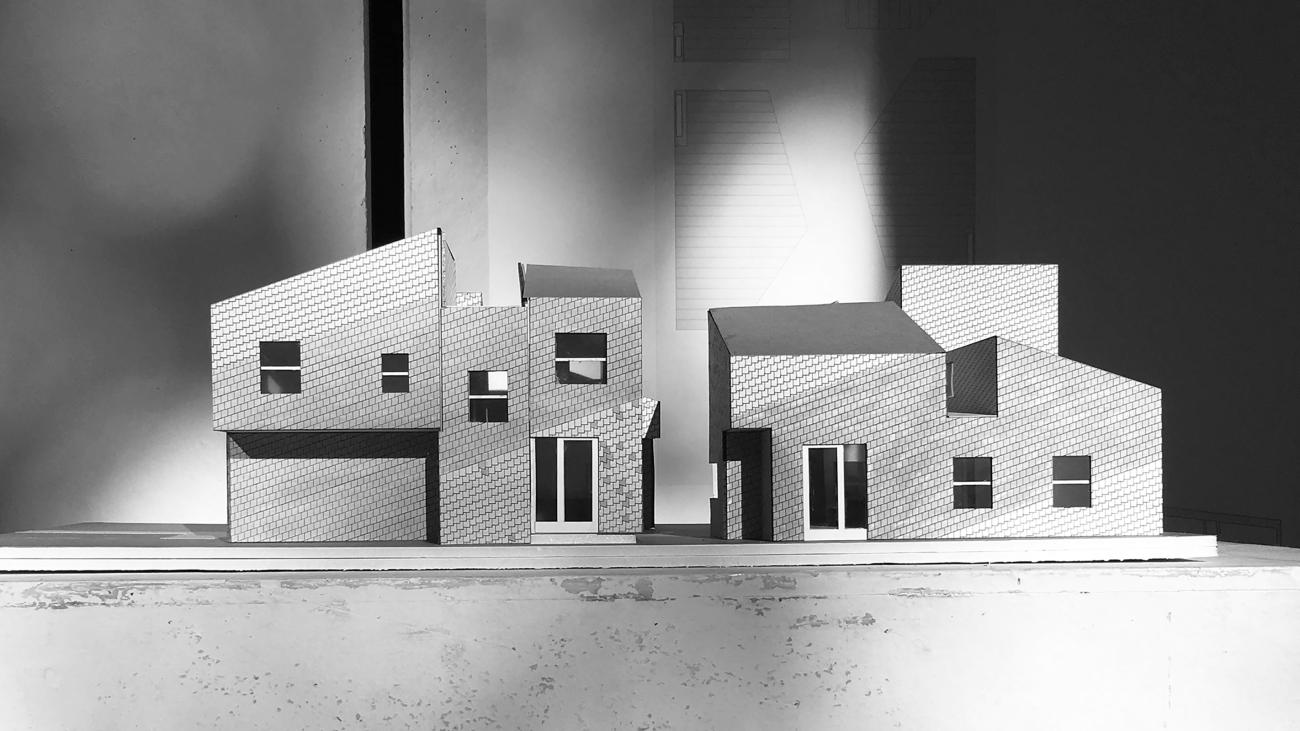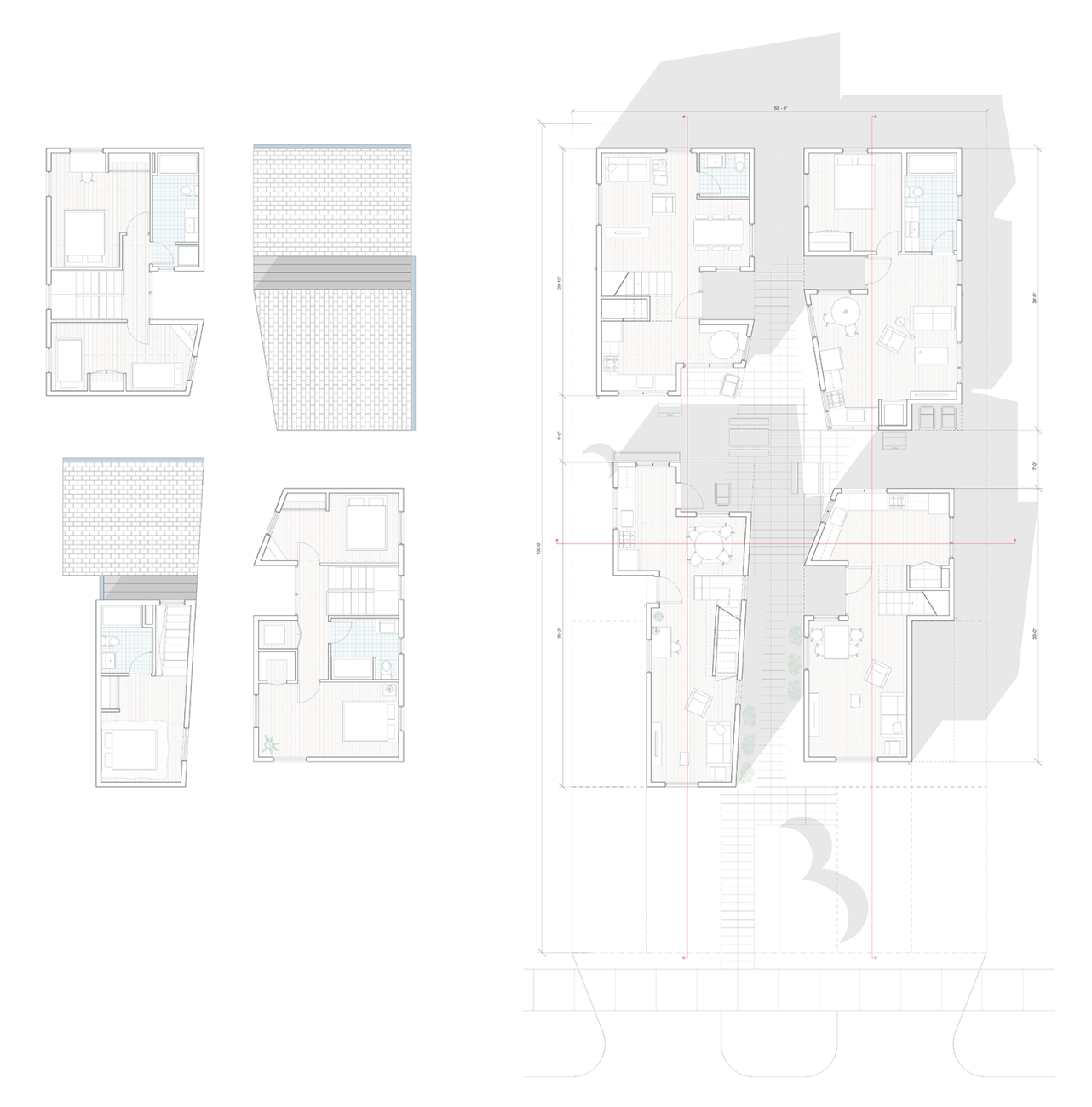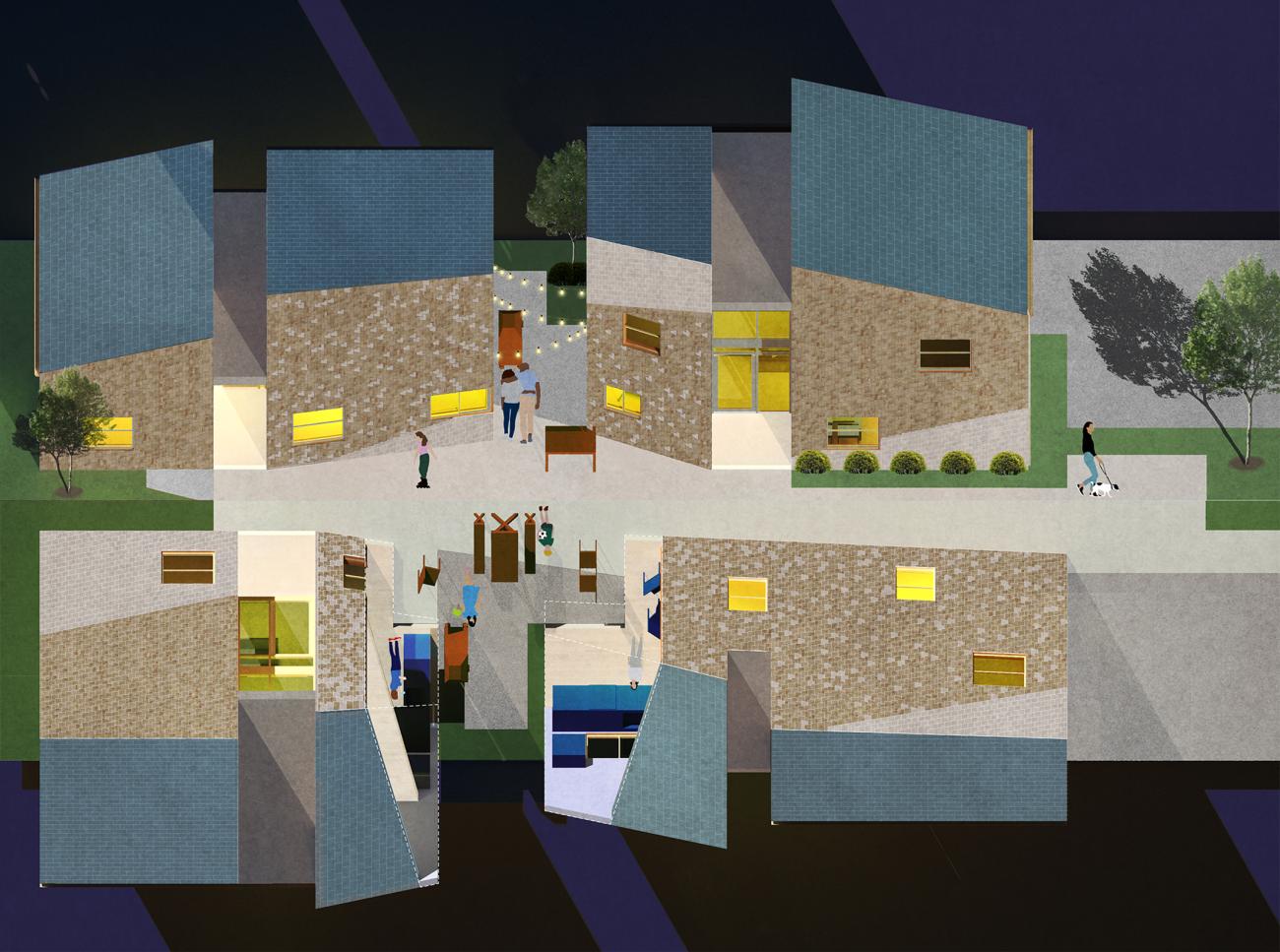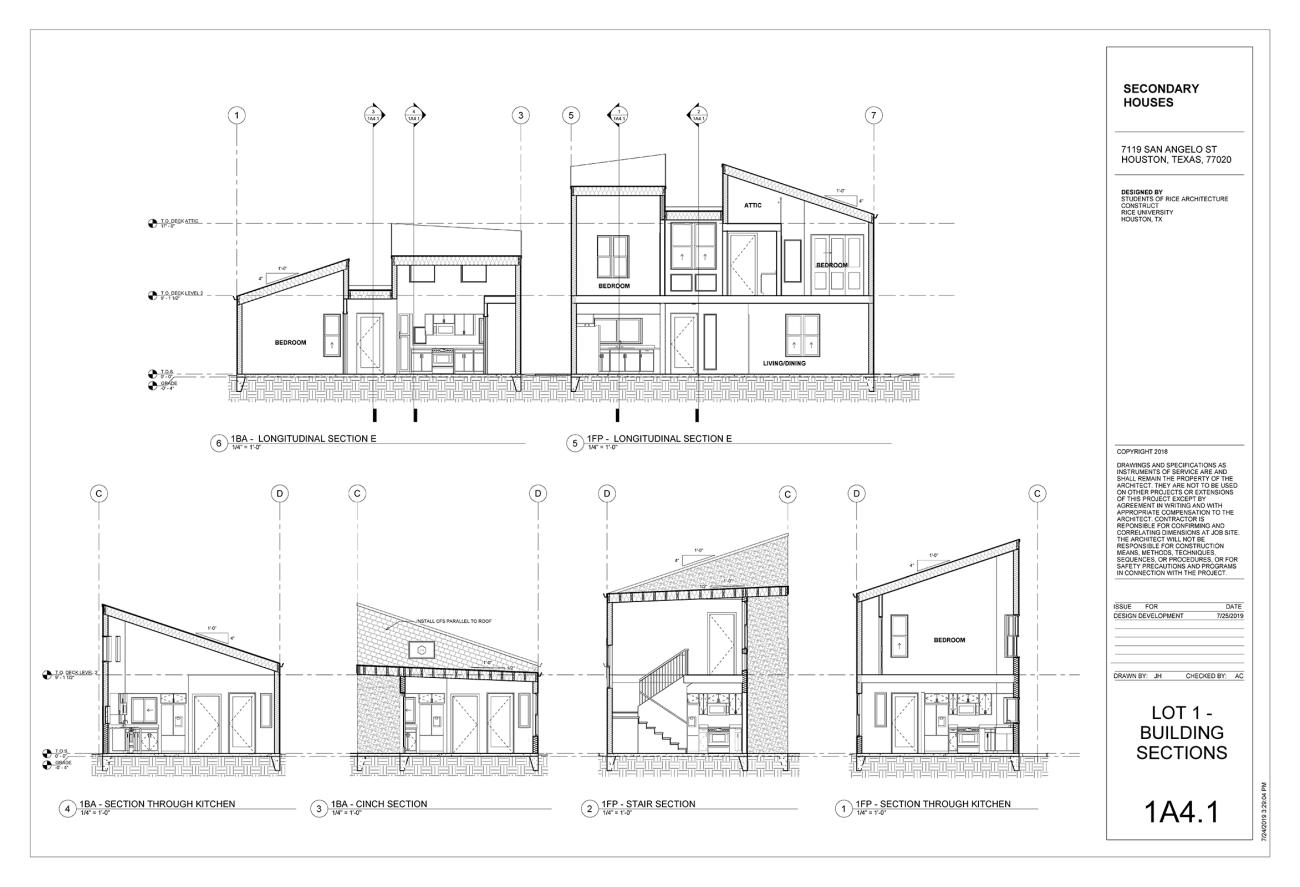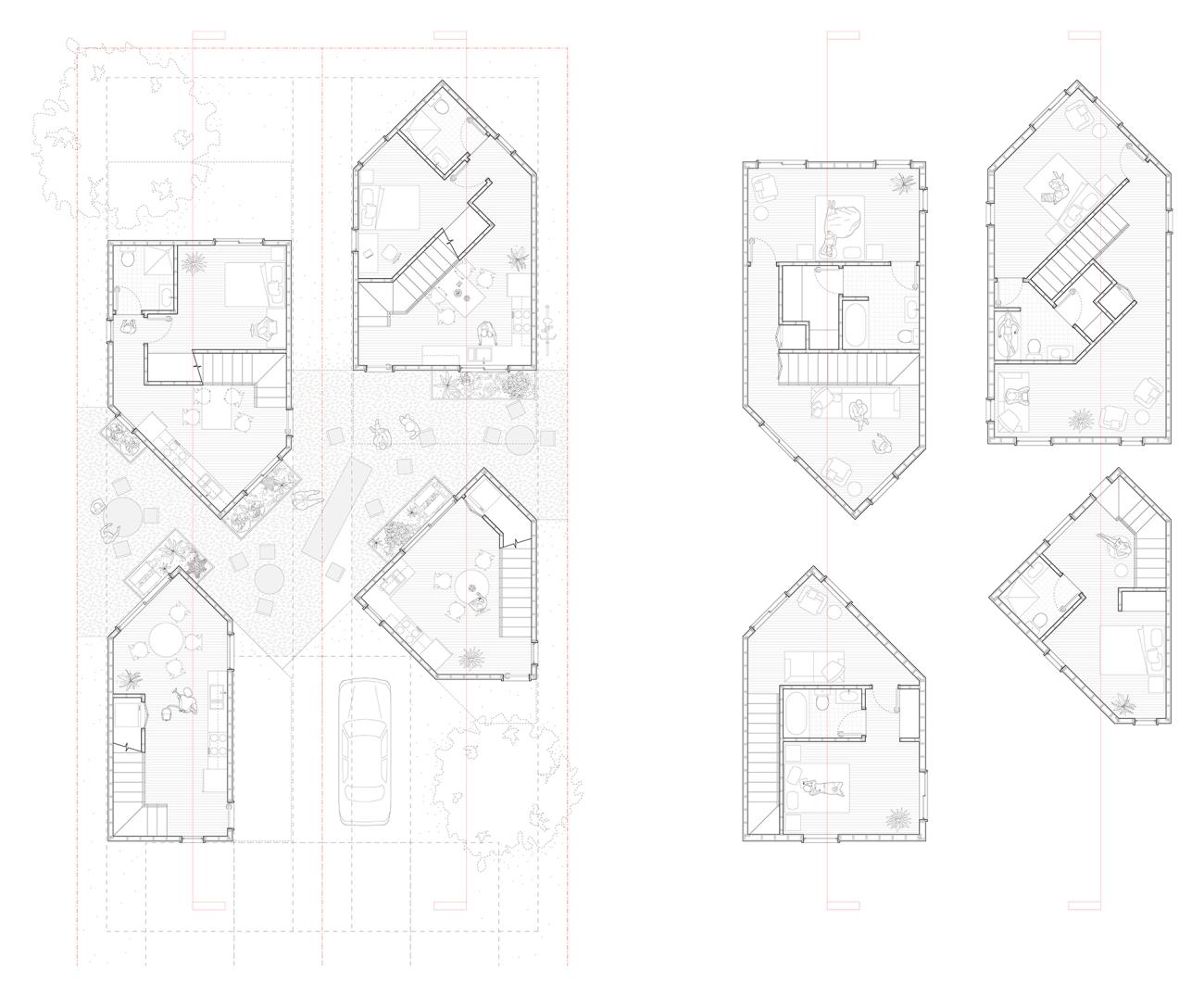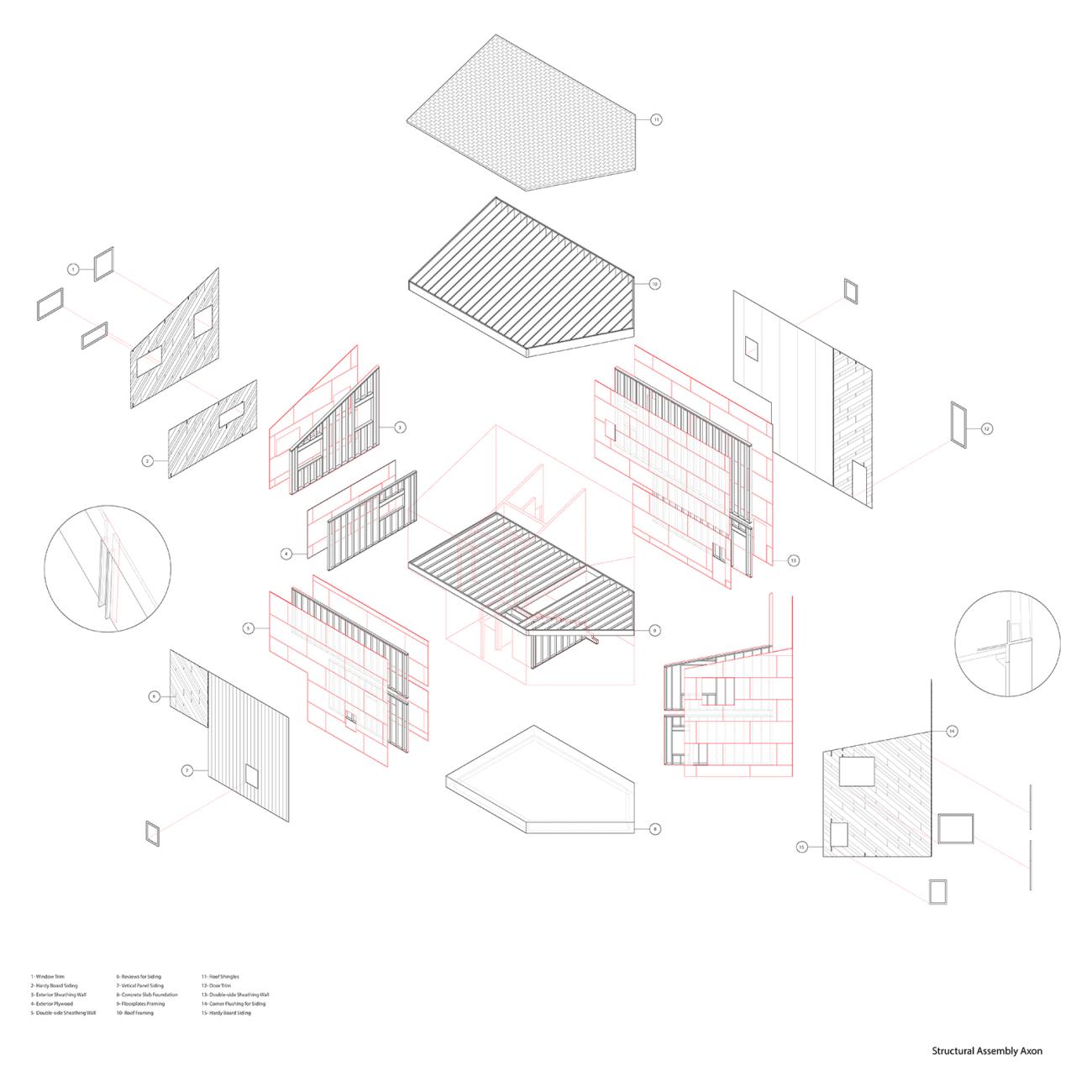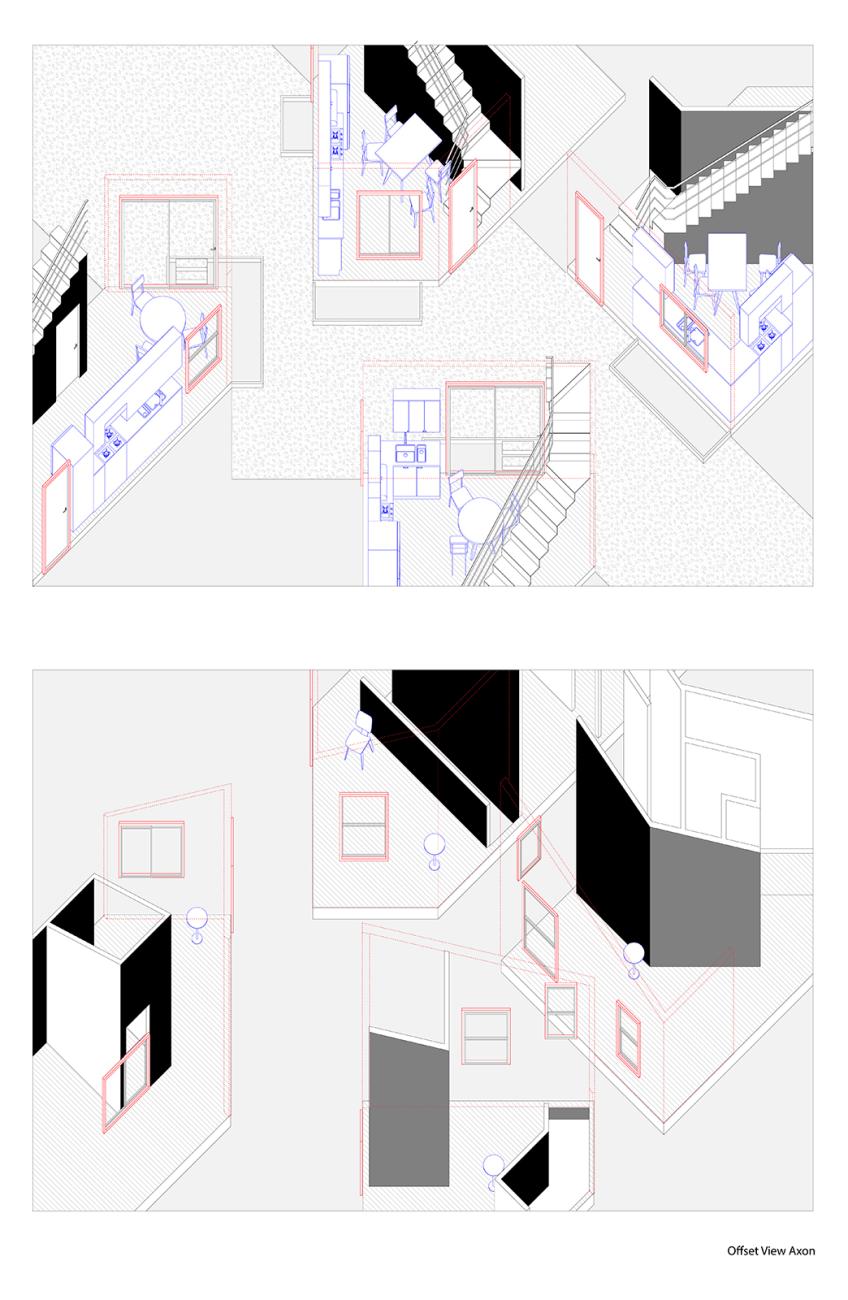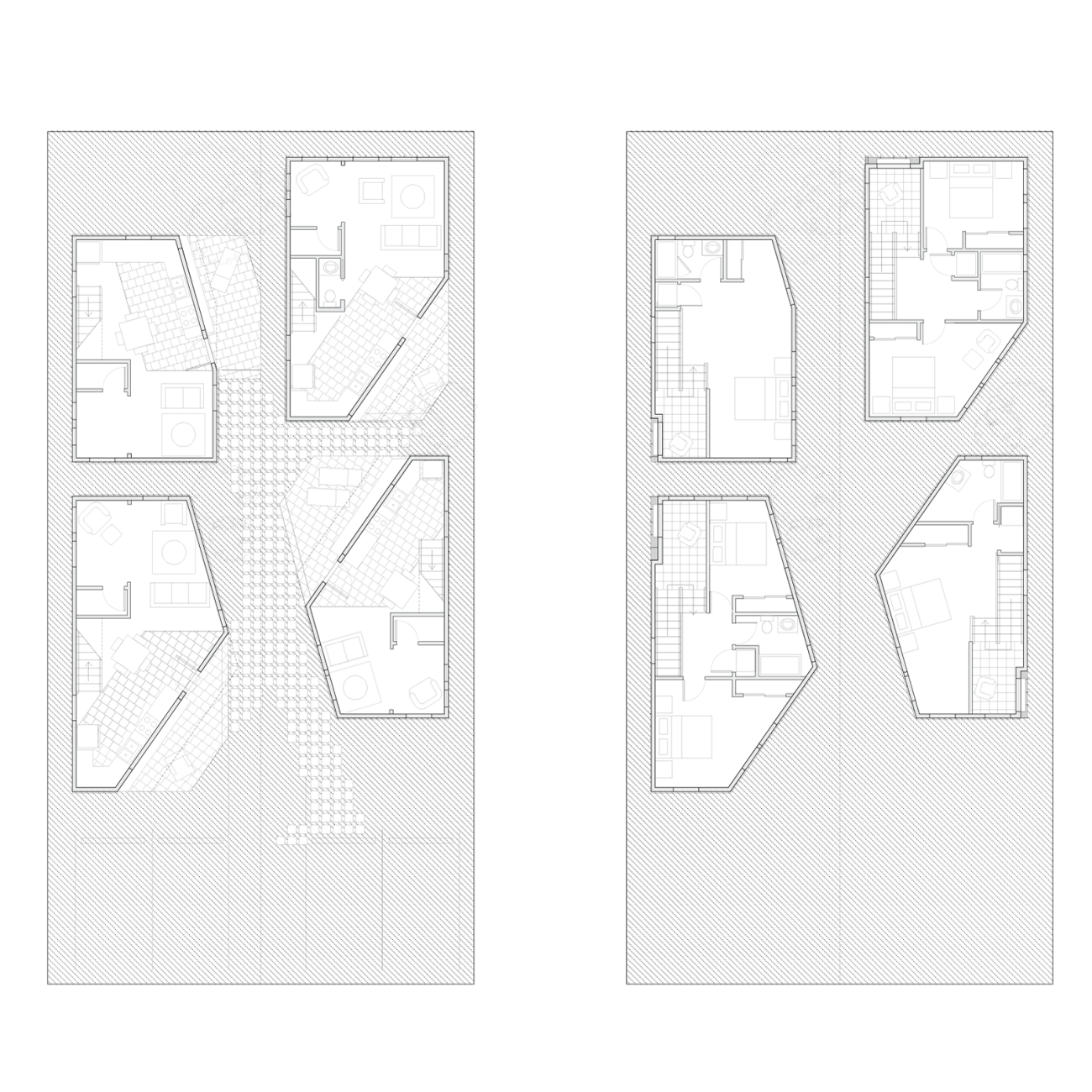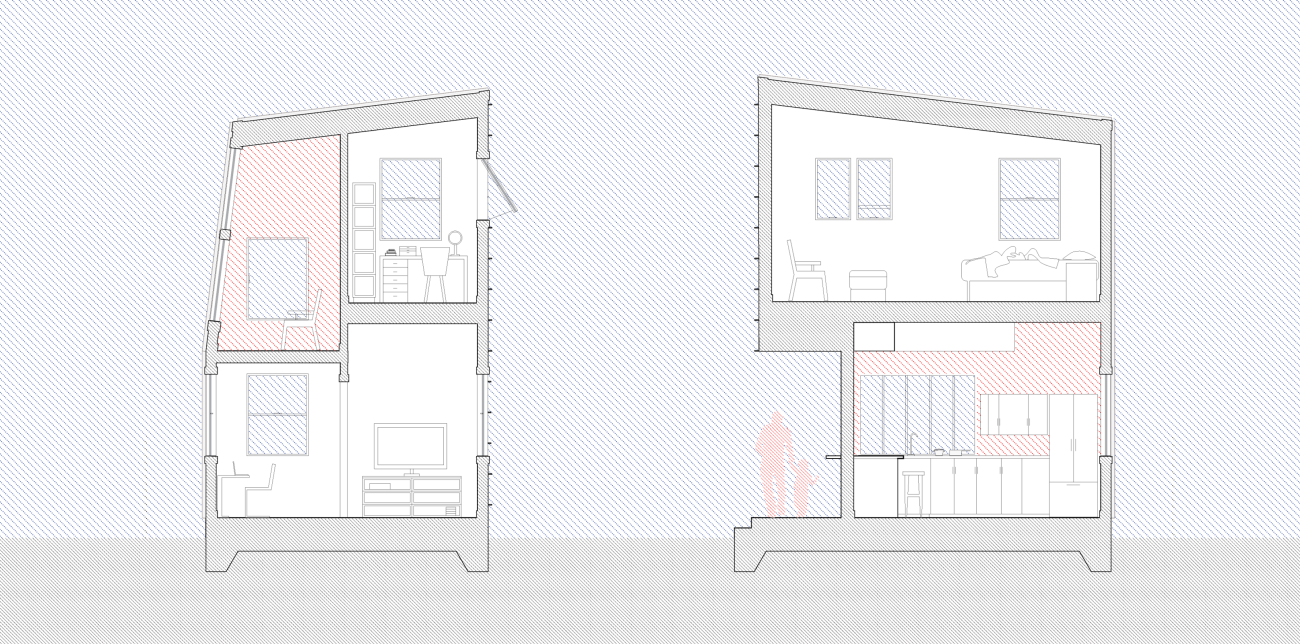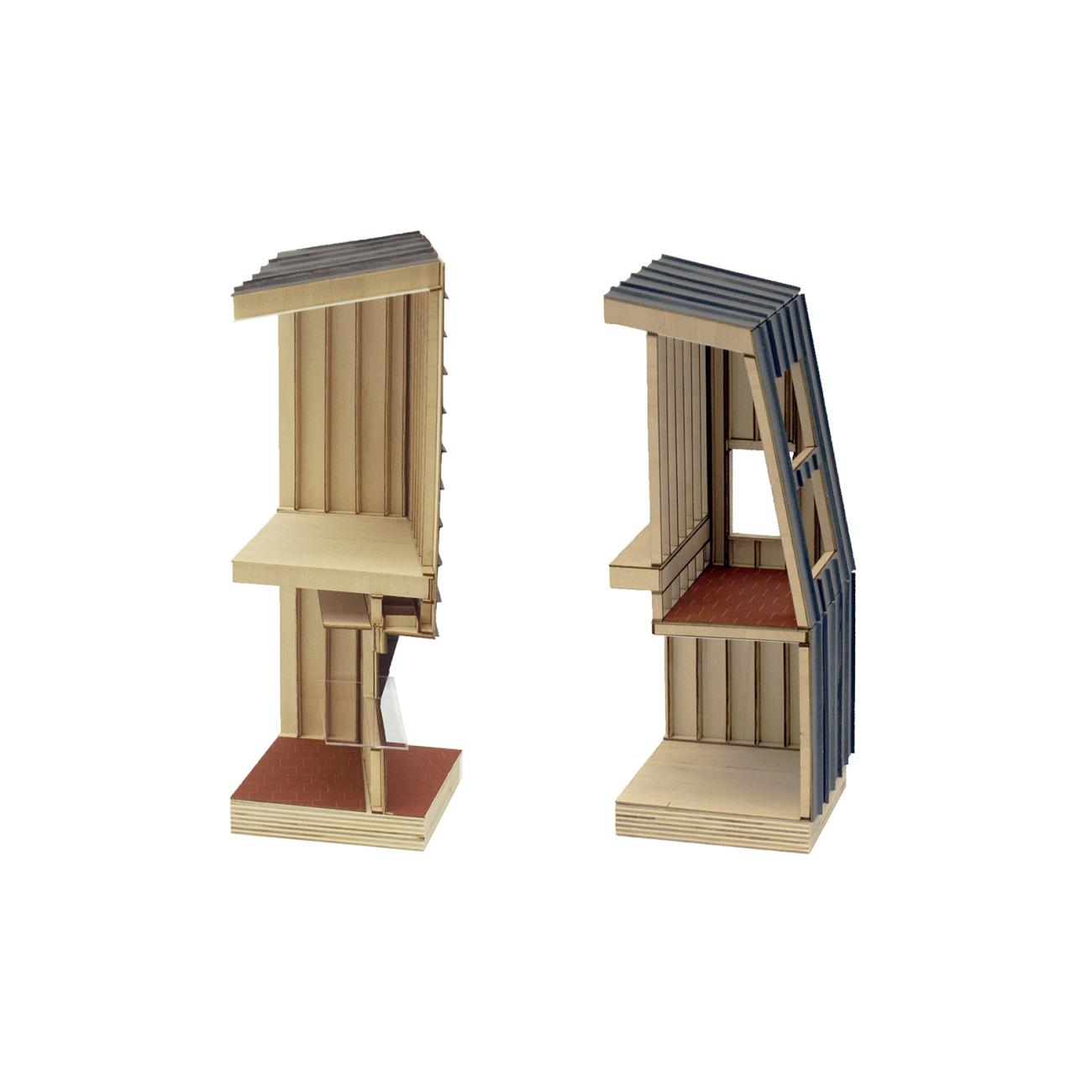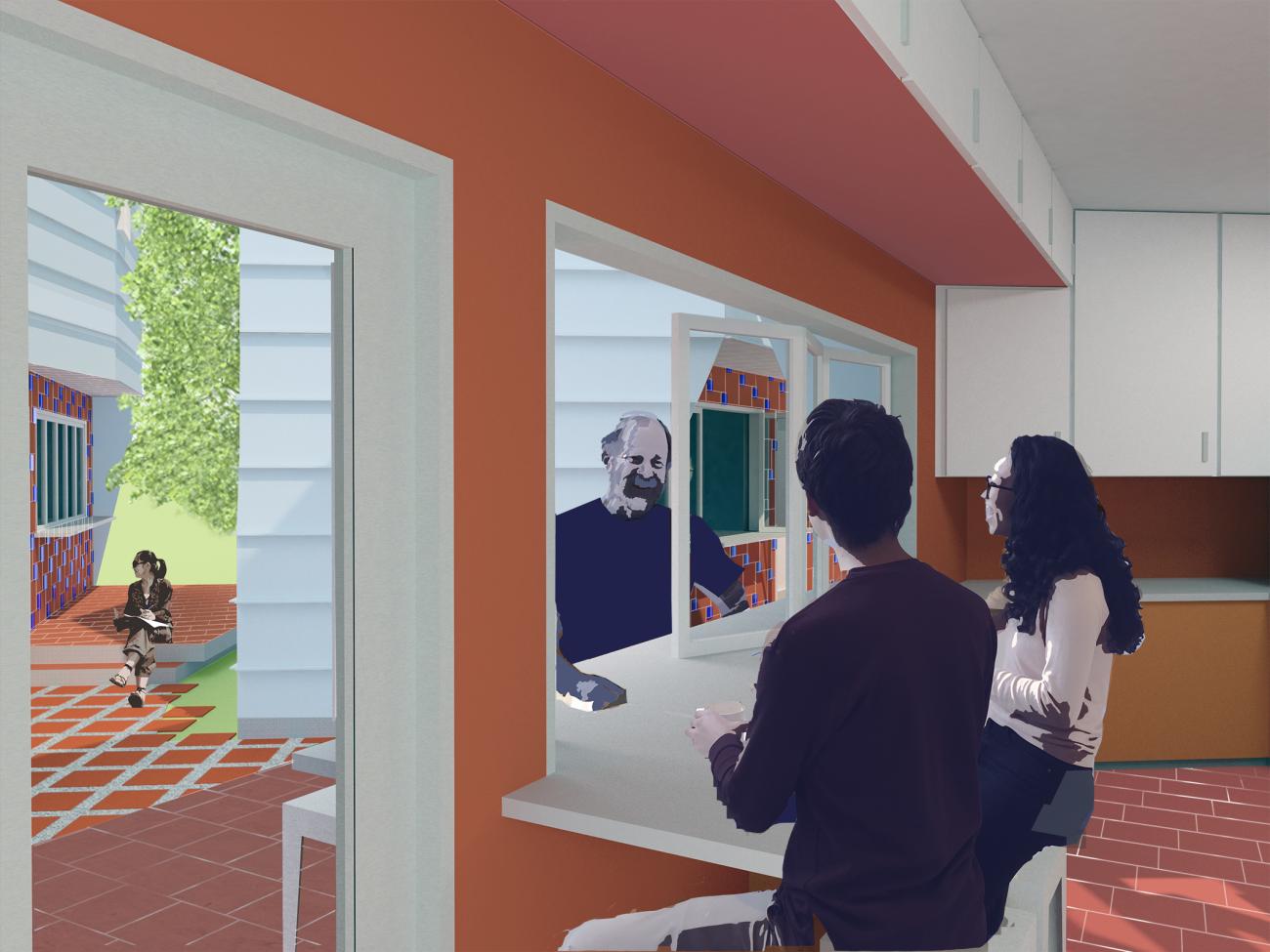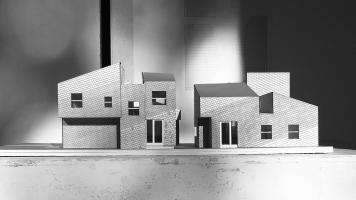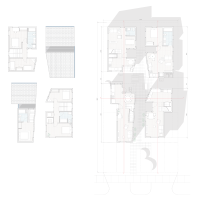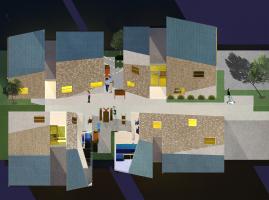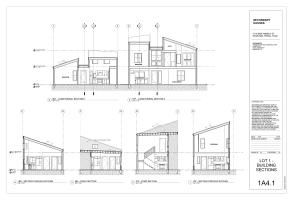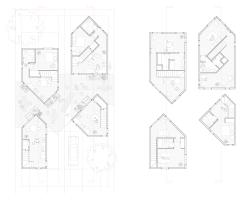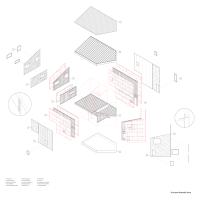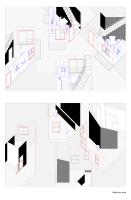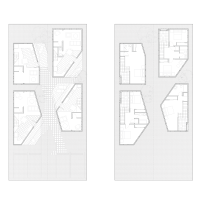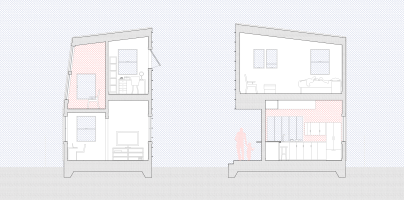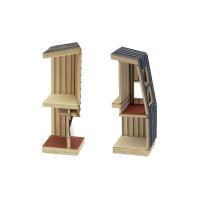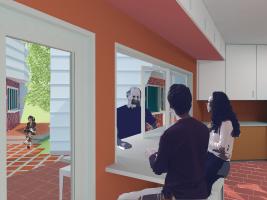Accessory dwellings are a viable model for increasing density and socioeconomic diversity within existing sprawl. However, they face a fundamental typological challenge: inherent inequality. What is secondary cannot be equal. The Secondary project seeks to contribute to the national dialogue on accessory dwellings by upending that condition, by finding ways to establish equity through diversity and community.
To address those broad aims, Construct partnered with Covenant Community Capital and Buffalo Bayou Partnership to create viable proposals for affordable housing in Houston’s Fifth Ward. Students were asked to produce one proposal of four buildings, two primary and two secondary, for three lots of different sizes, focusing on how the distinction between primary and secondary might be minimized. They made use of the Houston code, for instance, where secondary units need not be behind the primary unit. In order to respond to multiple sites with a singular strategy, students developed adaptive prototypes. The solid surface, an instrumental logic seeking to synthesize the surface of representation with the thickness of performance, was introduced to mediate this adaptivity within the budgets of affordable housing and conventions of stick construction.
The studio was the first of three phases, with a seminar in the spring refining one project and creating an initial construction document set. Over the summer, the Construct Fellow further refined and finalized the drawings, helping make the project ready for construction.
Studio: Caroline Brigham, Stephanie Chou, Margaret Hall, Jack Hilchey, Haimei Li, Qi Luo, Kajal Patel, Hannah Perrino, Katherine Tees, Denise Yee
Seminar: Caroline Brigham, Katherine Tees, Ashley Whiteside, Denise Yee, Chujun Zang, Minhui Zhou
Faculty and Fellows: Andrew Colopy and Danny Samuels, Construct Co-Directors; Jack Hilchey, Construct Fellow
Partners: Stephan Fairfield of Covenant Community Capital; Anne Olson and Jose Solis of Buffalo Bayou Partnership


